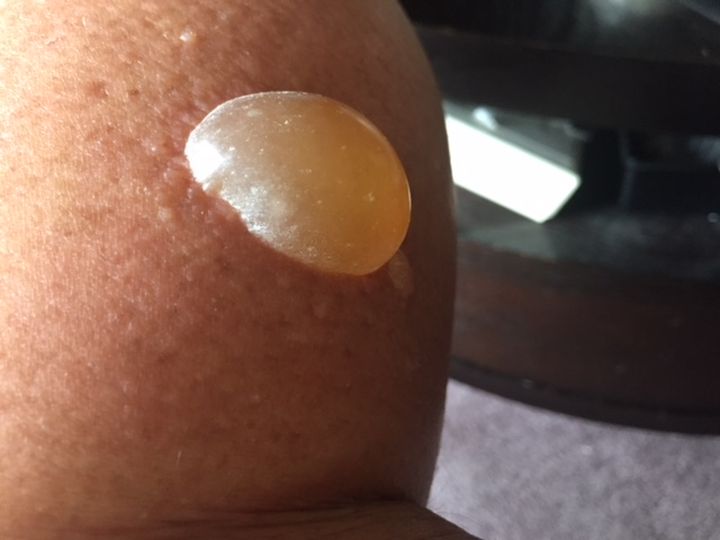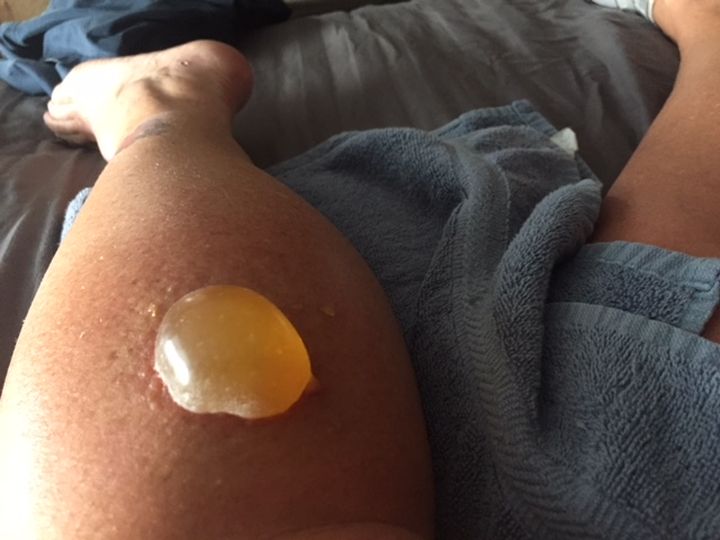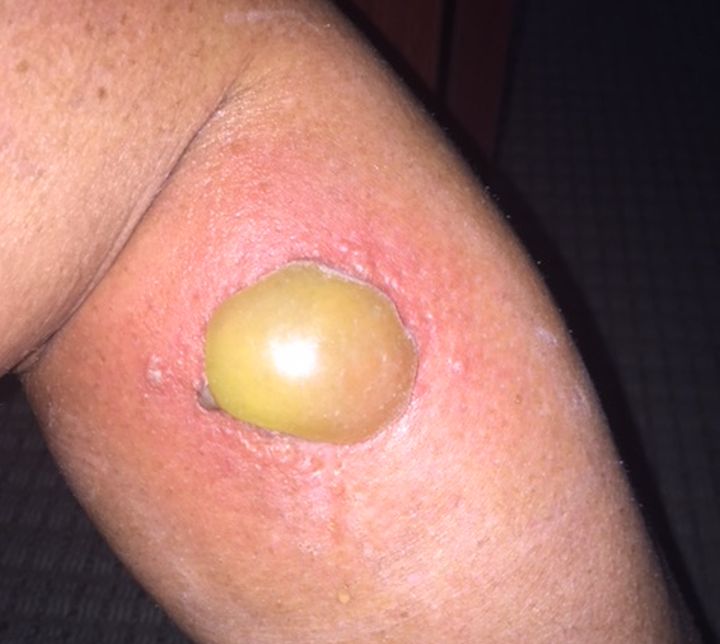WARNING: This post contains images of the blister.

Wasps are part of any summer activity in Calgary and for most people, they’re no more than flying pests.
But for Jackie Gilluley, what would normally be a short, painful bite, has turned into something much worse.
“I woke up in the morning and my leg had started to blister,” Gilluley said. “Then 48 hours after I was stung, the blister was about the size of an egg.”
Gilluley said she had been stung many times before and never had a reaction.

Get weekly health news
“It was the most painful sting I’ve had.”
Gilluley may not be alone when it comes to adults who see severe reactions to wasp stings for the first time.
Allergist Dr. Alex Lyttle says being stung more often actually increases the chance of having a nasty reaction.
“With each sting, your antibody levels can increase,” Lyttle said. “So if you’re stung once and fine, your antibody level may have bumped up. So your next sting, you could potentially have a more significant reaction.”
Adult males are the most likely demographic to see a change, according to Lyttle. And if you’re allergic to one kind of sting, you may be susceptible to others.
“If you’re allergic to hornets, you’re more likely to be allergic to wasps and yellow jackets.”
Gilluley hopes her experience will help more people to take wasp stings seriously.
One option Lyttle proposes to patients who have been stung many times is immunotherapy. Small amounts of the venom are injected, slowly building up tolerance and possibly lowering the chances of a severe reaction.
Lyttle suggests taking antihistamines to treat less severe stings and going to see a doctor if a sting causes a blister or other severe reaction.





Comments